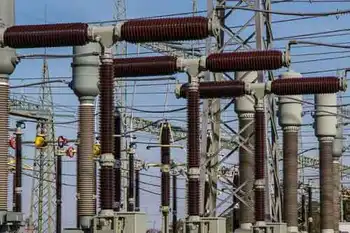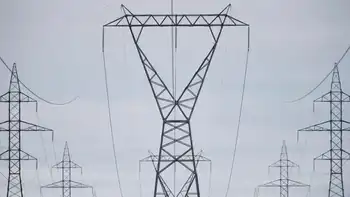Plans to fast track nuclear unveiled
By The Independent
CSA Z463 Electrical Maintenance
Our customized live online or in‑person group training can be delivered to your staff at your location.

- Live Online
- 6 hours Instructor-led
- Group Training Available
Energy and Climate Change Secretary Ed Miliband announced a series of national policy statements which included a list of sites deemed suitable for new nuclear developments.
Under changes to the planning laws, the Infrastructure Planning Commission (IPC) will be able to speed through the proposals for new schemes if it decides they fit in with the policy statements.
That would contrast with examples such as the six-year struggle to steer the Sizewell B power station through the planning process, and is likely to encourage foreign firms such as E.ON, RWE npower and EDF to produce a new fleet of UK power stations that could be up and running by 2017.
Alongside nuclear power, the government issued draft policy statements setting out the national need for new energy infrastructure including renewables, fossil fuels, gas and infrastructure, as well as an overarching energy statement.
Green groups expressed dismay at the prospect of new nuclear power and warned the government could be open to legal challenge if the statements do not properly consider climate change.
They have also raised concerns that people will not be able to influence decisions on major projects because schemes covered by the statements will not be subject to public inquiry.
But the government insists firms will have to work closely with local regions and show they have consulted widely in order to gain approval.
The statements are expected to cite the finite nature of fossil fuels and the pressing demands of climate change while making the case for nuclear power stations.
Mr Miliband will also set out the financial and regulatory framework for driving forward clean coal "carbon capture and storage" technology, but Greenpeace said neither should be part of Britain's future energy mix.
Robin Oakley, head of the group's climate and energy campaign, said: "Nuclear is a dangerous and expensive irrelevance to tackling climate change and providing real energy security.
"We don't need coal or nuclear, because proven green technologies such as wind and combined heat and power stations can secure Britain's energy needs, create green jobs and slash our emissions."
Friends of the Earth executive director Andy Atkins said the battle against climate change should be at the "core" of all Government decisions in order to meet commitments on reducing emissions.
And he added: "Building new nuclear reactors is not the answer to the challenges of climate change and energy security.
"Nuclear power leaves a deadly legacy of radioactive waste that remains highly dangerous for tens of thousands of years and costs tens of billions of pounds to manage.
"And building new plants would divert precious resources from developing safe renewable power, while doing little to bring about the urgent emissions reductions that are desperately needed within the next decade."
Mr Miliband, who unveiled the draft national policy statements to the Commons, said they were crucial for the shape of Britain's future energy supply.
"We know the low-carbon transition is a huge challenge," he said.
"We now need to move on to getting the actions in place to make it happen.
"That is why the national policy statements and Infrastructure Planning Commission are important, because the truth is that we are not going to be able to deliver a 21st century energy system with a 20th century planning system."











